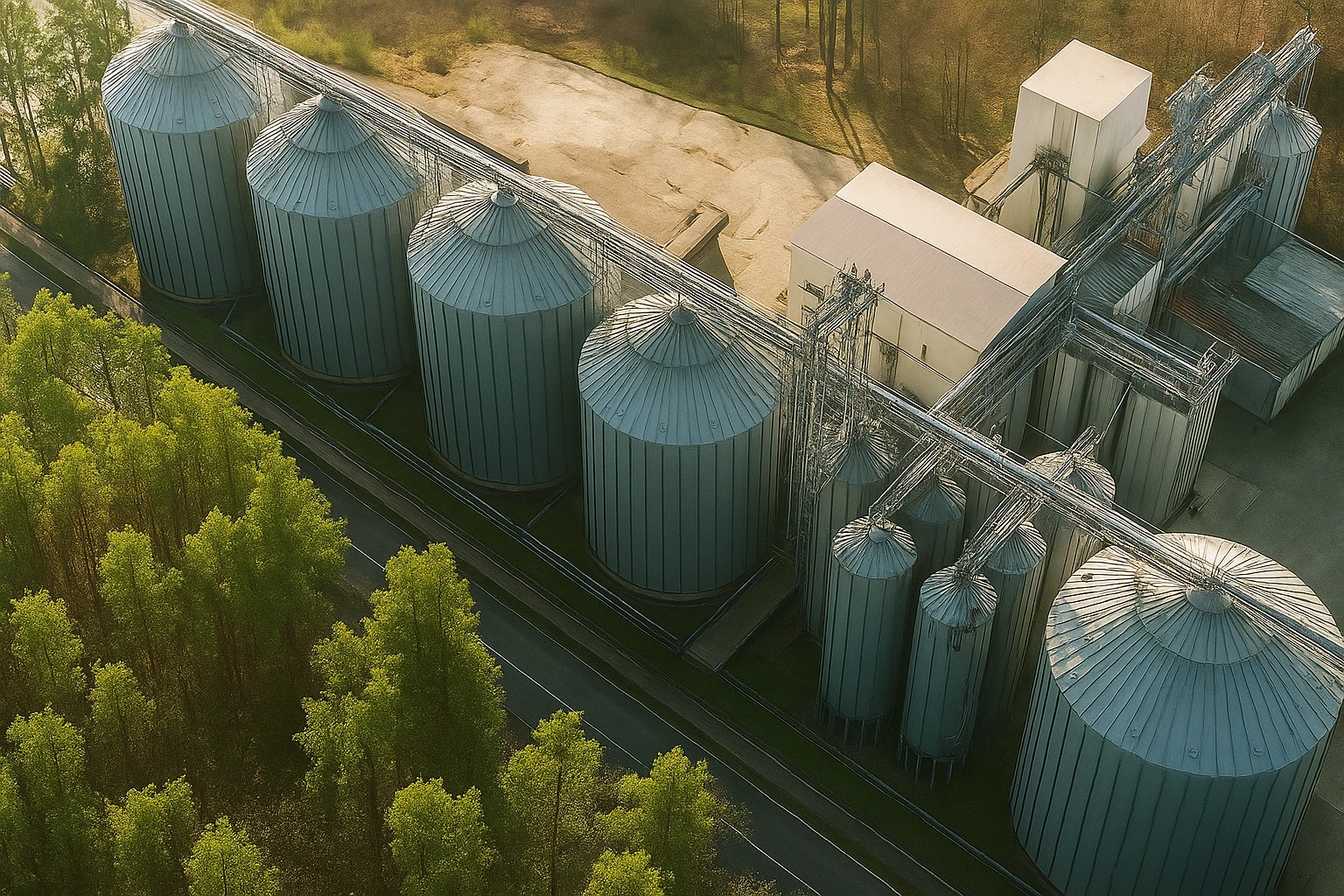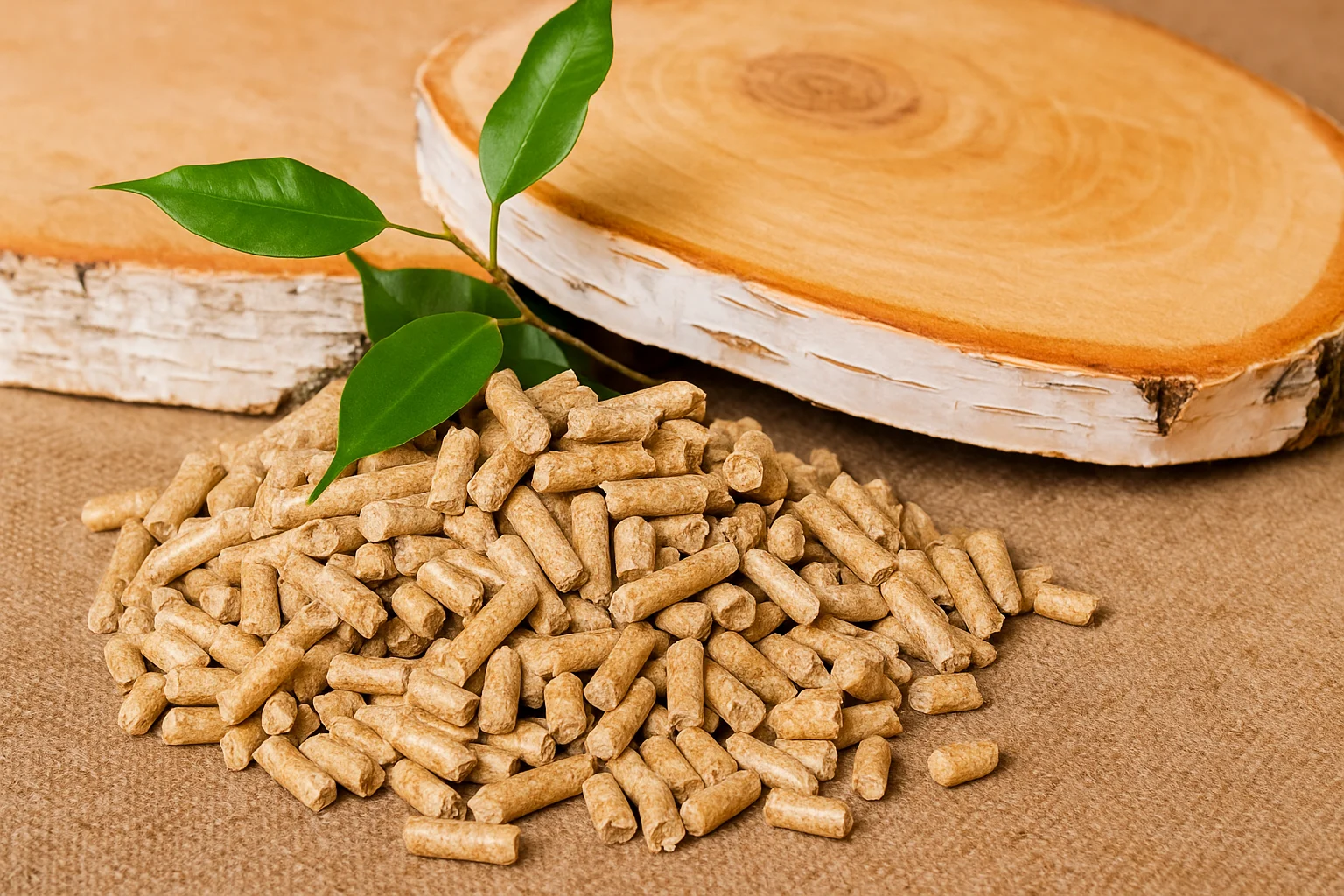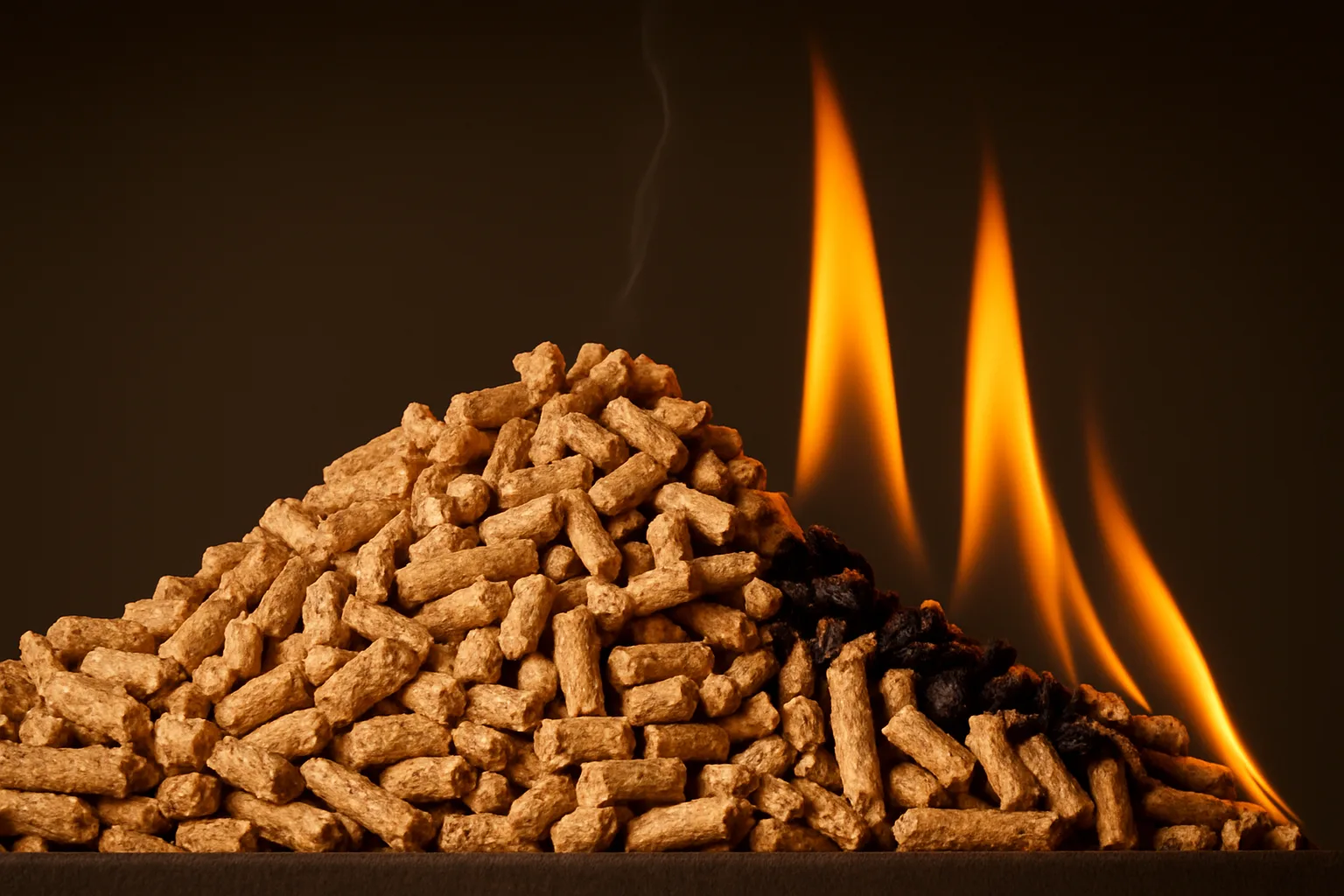
Feb 10, 2025
What Is Biomass Energy and Why Does It Matter for the Future?

Dito Rifki Irawan
Market Analyst – Biomass Commodities
Energy costs keep rising, and climate change is a growing concern. More people are looking for alternatives to traditional fossil fuels that are both affordable and better for the environment. This is where biomass energy comes into the picture—a renewable solution that’s creating new opportunities worldwide.
Understanding Biomass Energy
Biomass energy is simply energy that comes from organic materials—things that were once alive. This includes wood, plants, agricultural waste, and even food scraps. When these materials are burned or processed, they release energy that can heat homes, generate electricity, or power vehicles.
Think of it this way: plants capture energy from the sun as they grow. When we use these plants as fuel, we’re essentially using stored solar energy. This makes biomass energy a renewable resource because we can always grow more plants to replace what we’ve used.
Common Sources of Biomass Energy
Biomass energy can come from many different sources:
- Wood and tree branches from forests
- Wood pellets made from compressed sawdust
- Corn stalks and wheat straw from farms
- Grass and other crops grown specifically for energy
- Food waste from restaurants and homes
- Animal waste from farms
Each of these materials can be converted into useful energy in different ways, making biomass energy one of the most versatile renewable energy sources available today.
What Are Wood Pellets?
Wood pellets have become one of the most popular forms of biomass fuel worldwide. These are small, cylinder-shaped pieces of compressed wood that look similar to rabbit food pellets. They’re made by taking sawdust and wood shavings—materials that would otherwise be waste—and compressing them under high pressure.
Why People Choose Wood Pellets for Biomass Energy
Wood pellets offer several practical benefits:
Easy to Use: Unlike chopping and stacking firewood, wood pellets come in bags that are easy to store and handle. Many modern pellet stoves automatically feed pellets into the fire, so you don’t have to constantly tend the flame.
Burns Cleaner: Wood pellets produce much less smoke and ash than regular firewood. This means less pollution and less cleaning for you.
More Heat, Less Space: Because they’re compressed, wood pellets pack more energy into a smaller space. You get more heat from less fuel, and you need less storage room.
Cost-Effective: In many areas, heating with wood pellets costs less than electric heating or oil. While the stove itself is an investment, many people save money on heating bills over time.
Consistent Quality: Unlike regular firewood that can be wet or uneven, wood pellets are manufactured to consistent standards. This means predictable heat output every time.
How Biomass Energy Works in Daily Life
Home Heating with Wood Pellets
Many homeowners use wood pellet stoves or boilers to heat their homes. These systems work similarly to traditional furnaces but burn wood pellets instead of gas or oil. Modern pellet stoves have thermostats and automatic controls, making them as convenient as conventional heating systems.
A typical home might use 3-5 tons of wood pellets per winter, depending on climate and house size.
Power Generation Through Biomass Energy
Large power plants are increasingly using biomass energy to generate electricity. Some burn wood pellets instead of coal, producing cleaner energy while still providing reliable power to the grid.
Countries like Japan and Korea are expanding their biomass energy capacity. This creates opportunities for international suppliers who can provide quality wood pellets reliably.
Industrial Applications
Factories and commercial buildings use biomass energy for heating and powering their operations. This can significantly reduce energy costs while helping companies meet environmental goals.
Why Biomass Energy Matters for the Future
Environmental Benefits
Biomass energy is considered much cleaner than fossil fuels for several reasons:
Carbon Balance: When plants grow, they absorb carbon dioxide from the air. When we burn them for energy, that carbon is released back. If we keep planting new trees and crops, the cycle stays balanced.
Reduces Waste: Biomass energy turns waste materials into something useful. Sawdust, crop leftovers, and wood scraps become fuel instead of ending up in landfills.
Cleaner Burning: Modern biomass energy systems, especially those using wood pellets, produce fewer harmful emissions than older wood-burning methods or fossil fuel systems.
Economic Benefits
Biomass energy makes financial sense:
Stable Prices: While oil and gas prices go up and down dramatically, biomass energy prices tend to be more stable and predictable.
Lower Costs: Many people find that wood pellets cost less than heating oil, propane, or electricity. The savings can be significant, especially in areas with cold winters.
Business Opportunities: The growing demand for biomass energy creates opportunities for suppliers, distributors, and traders who can connect producers with users across different countries.
Energy Security
Using biomass energy means countries can diversify where their energy comes from. This reduces dependence on expensive fossil fuel imports and creates more stable energy supplies.
The Global Wood Pellet Market
The international wood pellet market has grown significantly. Countries around the world are both producing and using wood pellets, creating a dynamic global trade network.
Countries That Export Wood Pellets
Several regions produce large quantities of wood pellets for export:
- North America (Canada and United States)
- Russia and Eastern Europe
- Southeast Asia (including Indonesia)
- South America
These countries have abundant forest resources and can produce high-quality wood pellets cost-effectively.
Countries That Import Wood Pellets
Other countries need to import wood pellets to meet their energy needs:
- Japan - expanding renewable energy rapidly
- South Korea - strong environmental policies
- European countries - established biomass markets
- Other Asian nations - growing demand
These countries have strong environmental goals but limited space or resources to produce enough biomass energy domestically.
The Role of Trade
International trade in wood pellets helps connect surplus production with high demand. This creates opportunities for:
- Exporters who can supply quality products to international markets
- Importers who can source reliable fuel for their energy needs
- Distributors who manage logistics and ensure smooth delivery
- Traders who understand both supply and demand sides of the market
Indonesia’s Opportunity in Biomass Energy
Indonesia is well-positioned in the biomass energy market. The country has extensive forest resources, a climate that supports rapid plant growth, and a strategic location near major Asian markets.
Growing Domestic Demand
Within Indonesia, interest in biomass energy is growing. Power plants are exploring cleaner alternatives to coal, and industries are looking for cost-effective fuel options. This creates local opportunities for wood pellet supply.
Export Potential
Indonesia can also supply international markets. Countries like Japan and Korea need large quantities of wood pellets to meet their renewable energy targets. Indonesian suppliers who can deliver quality products reliably have strong export opportunities.
Import Opportunities
Indonesia also imports certain grades of wood pellets and biomass materials to meet specific market needs. This two-way trade helps balance supply and demand while creating business opportunities.
Quality Matters in Wood Pellets
Not all wood pellets are the same. Quality affects how well they burn, how much heat they produce, and how much ash they leave behind.
Good quality wood pellets should have:
- Low moisture content (dry pellets burn better)
- Minimal ash (less cleaning needed)
- Consistent size (reliable feeding in automatic systems)
- Good compression (won’t crumble easily)
Working with reliable suppliers ensures you get consistent quality, whether you’re buying for home heating or large industrial use.
The Future of Biomass Energy
Biomass energy continues to grow worldwide. More countries are setting renewable energy targets, and wood pellets play an important role in meeting those goals.
Technology keeps improving, making biomass energy systems more efficient and cleaner. The market is becoming more organized, with better supply chains connecting producers, traders, and end users.
For businesses, the biomass energy sector offers opportunities in:
- Supply and distribution
- Import and export trade
- Logistics and storage
- Quality control and testing
PT. Guntala Karya Abadi: Connecting Supply and Demand
At PT. Guntala Karya Abadi, we understand the biomass energy market from all angles. Our expertise covers:
Import Operations: We source quality wood pellets from international suppliers, ensuring consistent availability for domestic customers who need reliable fuel supplies.
Export Services: We connect Indonesian wood pellet producers with international buyers, particularly in growing Asian markets like Japan and Korea.
Domestic Distribution: We manage the logistics of moving biomass energy products within Indonesia, ensuring timely delivery to power plants, industrial users, and other customers.
Quality Assurance: We work only with products that meet proper standards, giving our customers confidence in what they’re buying.
Our experience in both import and export, combined with strong domestic distribution networks, allows us to serve customers efficiently whether they need wood pellets for local use or want to access international markets.
Getting Started with Biomass Energy
Whether you’re considering wood pellets for home heating, looking for industrial fuel alternatives, or exploring business opportunities in the biomass energy sector, the first step is understanding your needs and options.
For homeowners, talk to people who already use wood pellets. Visit showrooms to see different stove options. Calculate your potential savings based on current heating costs.
For businesses, consider your energy needs, storage capabilities, and long-term fuel cost projections. Reliable suppliers can help you evaluate whether biomass energy makes sense for your operations.
For those interested in the trade side, understand both supply sources and market demand. Success in biomass energy trade requires knowledge of quality standards, logistics, and customer needs in different regions.
The Bottom Line
Biomass energy and wood pellets offer practical solutions for cleaner, more affordable energy. The global market continues to grow, creating opportunities for countries, businesses, and individuals who want to participate in the renewable energy transition.
Whether through domestic use, import, export, or distribution, biomass energy represents a sector with real potential. The technology works, the market exists, and the environmental benefits are clear.
At PT. Guntala Karya Abadi, we’re committed to supporting this transition by connecting quality wood pellet supply with market demand—whether that means importing to meet domestic needs, exporting Indonesian products to international markets, or distributing efficiently within the country.
Biomass energy isn’t just about the future—it’s a practical opportunity available today for those ready to participate in the growing renewable energy market.


